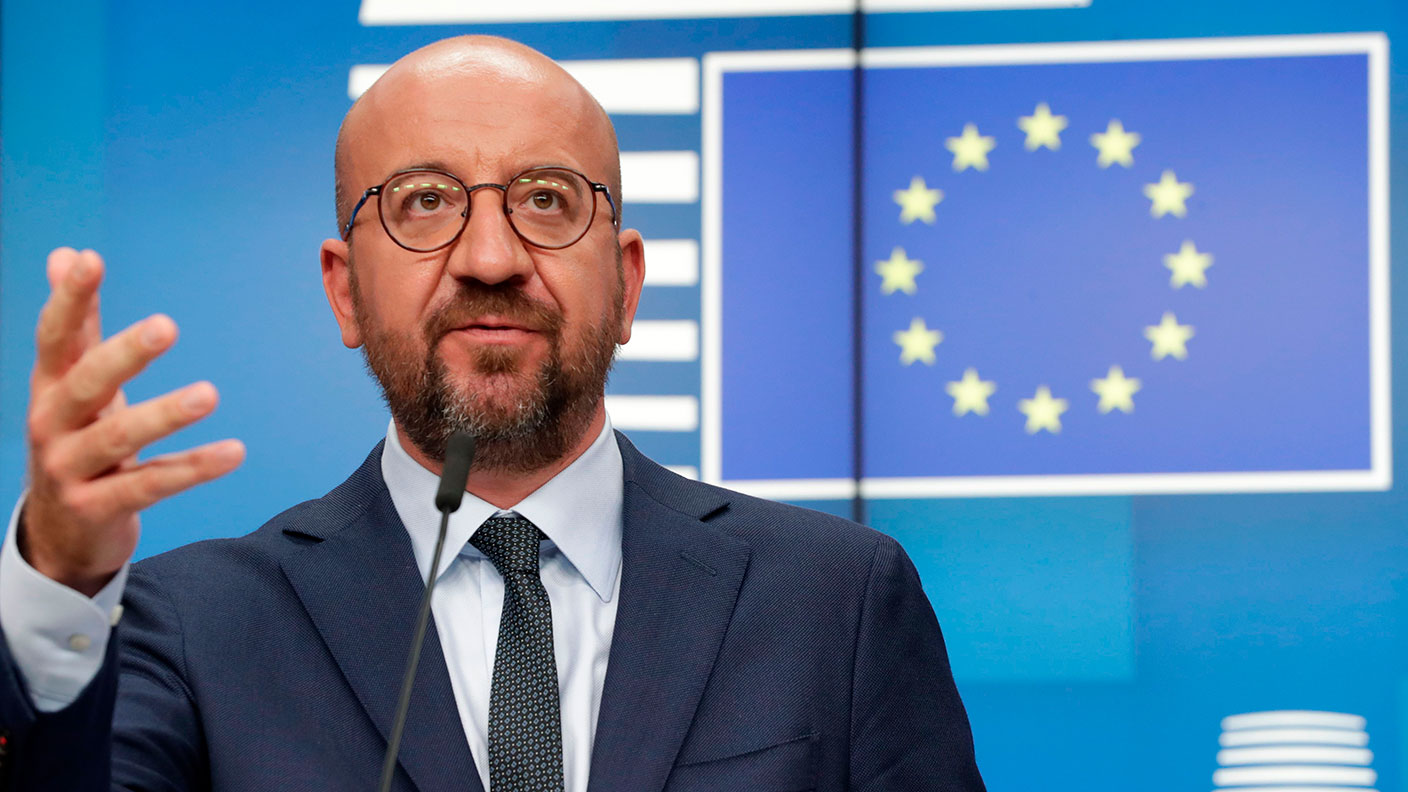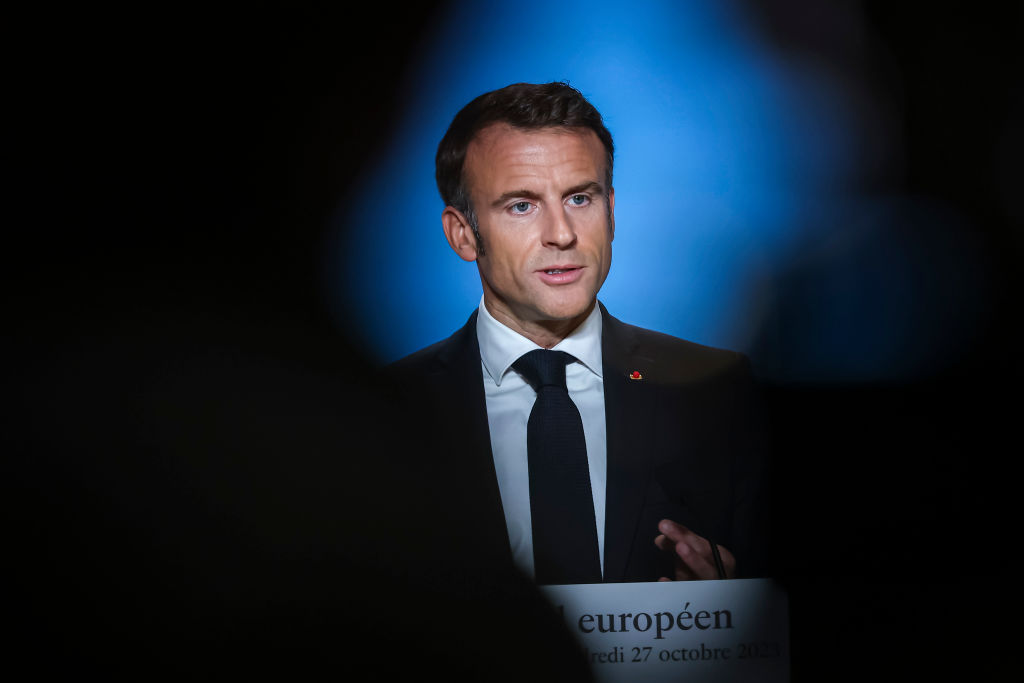Europe’s magic works better in the dark
Europe’s latest fiscal intervention looks like the kind of muddle-through that makes a United States of Europe more likely, says Merryn Somerset Webb. But only if you don’t look too closely.


Get the latest financial news, insights and expert analysis from our award-winning MoneyWeek team, to help you understand what really matters when it comes to your finances.
You are now subscribed
Your newsletter sign-up was successful
Want to add more newsletters?

Twice daily
MoneyWeek
Get the latest financial news, insights and expert analysis from our award-winning MoneyWeek team, to help you understand what really matters when it comes to your finances.

Four times a week
Look After My Bills
Sign up to our free money-saving newsletter, filled with the latest news and expert advice to help you find the best tips and deals for managing your bills. Start saving today!
If your dream is a United States of Europe you may not much mind a crisis: it is usually one of these that prompts a new step towards EU integration. So it is with Covid.
The strict lockdowns most EU governments adopted as their main pandemic policy have created economic carnage across the continent. The European Central Bank (ECB) has done its bit – but it also asked and asked for a dose of fiscal intervention as well. The Commission has delivered: its latest seven-year budget is to be bumped up with the €750bn Next Generation EU Fund (NGEU) to help the worst affected countries.
This comes with three interesting bits. The first is that the €390bn of the cash is to be distributed as grants, not loans – usually, the EU likes to pretend that it is not in the business of fiscally transferring between rich and poor EU members by dressing transfers up as loans (conditions can always be changed later).
MoneyWeek
Subscribe to MoneyWeek today and get your first six magazine issues absolutely FREE

Sign up to Money Morning
Don't miss the latest investment and personal finances news, market analysis, plus money-saving tips with our free twice-daily newsletter
Don't miss the latest investment and personal finances news, market analysis, plus money-saving tips with our free twice-daily newsletter
The second is that the cash is to be directly borrowed by the Commission itself with the issue of new bonds with various maturities from three years up, extending to 2058, and guaranteed by its own revenues. Previously, Eurobonds have been jointly guaranteed by the EU countries, something the German public (the most likely to end up on the hook) have not always been mad for.
The third relates to the second – if the Commission is to guarantee payback from its own revenues (known as “own resources” in EU-speak) it’s going to have to bump them up. Right now, the Commission gets a smallish flow of cash from the EU countries in the form of customs revenues and a percentage of each country's VAT revenues. That’s not enough – so the new deal comes with a new ability for the Commission to raise its own resources via new taxes (on digital activities and carbon, for example).
This is all important. it means the Commission will no longer be just a middle-man between national tax revenues and EU spending: it can leverage its own budget with common debt. It also means that it can directly subsidise countries for the first time. Neither of these things could have happened (indeed, been imagined outside the minds of fanatics) this time last year.
You can argue that this is a one off, that the amount is not that big (€750bn is small beer in a money-printing world) and note there is an “emergency brake” in there (allowing countries to object to the way others spend grant money). But the history of EU emergency brakes is not a useful one.
We also know there is little so permanent as a temporary EU scheme that advances the federal cause: note the way in which the European Financial Stability Facility (created as a bailout vehicle in 2010) is still with us. Future crises are bound to be met with similar schemes. And the definition of a crisis will be fast watered down – particularly given the low rates at and ease with which the EU will be able to borrow.
The NGEU fund does, then, represent a real moment for the EU. But a Hamiltonian moment? No. This deal looks as if it brings EU countries closer together; as if it is the kind of muddle-through that makes the EU’s survival more likely than less. But there is a chance that its explicitness does the opposite. Several one-time red lines have already been crossed here – and the “own resources” one is yet to come.
Many EU populations already find their financial obligations to the EU irritating, but at least the cash they send it is non-direct. New taxes levied directly on their activities to pay for things they didn’t vote for might make them wonder again about the democratic legitimacy of the EU. Charles Michel, the European Council president, referred to the magic of the European Project when this latest deal was announced. Like all magic, it might work best in the dark.
Get the latest financial news, insights and expert analysis from our award-winning MoneyWeek team, to help you understand what really matters when it comes to your finances.

-
 Early signs of the AI apocalypse?
Early signs of the AI apocalypse?Uncertainty is rife as investors question what the impact of AI will be.
-
 Reach for the stars to boost Britain's space industry
Reach for the stars to boost Britain's space industryopinion We can’t afford to neglect Britain's space industry. Unfortunately, the government is taking completely the wrong approach, says Matthew Lynn
-
 No peace dividend in Trump's Ukraine plan
No peace dividend in Trump's Ukraine planOpinion An end to fighting in Ukraine will hurt defence shares in the short term, but the boom is likely to continue given US isolationism, says Matthew Lynn
-
 How have central banks evolved in the last century – and are they still fit for purpose?
How have central banks evolved in the last century – and are they still fit for purpose?The rise to power and dominance of the central banks has been a key theme in MoneyWeek in its 25 years. Has their rule been benign?
-
 Europe’s new single stock market is no panacea
Europe’s new single stock market is no panaceaOpinion It is hard to see how a single European stock exchange will fix anything. Friedrich Merz is trying his hand at a failed strategy, says Matthew Lynn
-
 What's behind the big shift in Japanese government bonds?
What's behind the big shift in Japanese government bonds?Rising long-term Japanese government bond yields point to growing nervousness about the future – and not just inflation
-
 Do we need central banks, or is it time to privatise money?
Do we need central banks, or is it time to privatise money?Analysis Free banking is one alternative to central banks, but would switching to a radical new system be worth the risk?
-
 The French economy's Macron bubble is bursting
The French economy's Macron bubble is burstingCheap debt and a luxury boom have flattered the French economy. That streak of luck is running out.
-
 The Bank of England can’t afford to hike interest rates again
The Bank of England can’t afford to hike interest rates againWith inflation falling, the cost of borrowing rising and the economy heading into an election year, the Bank of England can’t afford to increase interest rates again.
-
 UK wages grow at a record pace
UK wages grow at a record paceThe latest UK wages data will add pressure on the BoE to push interest rates even higher.